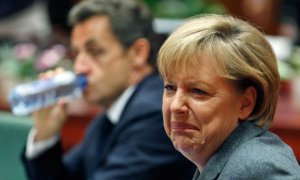Within the past few weeks there has been much speculation over what Germany would do in regards to the next round of EU bailouts. There was some talk that German politicians saw the bailout as contrary to German law, but in the end they decided discretion was the better part of valour. In other words, to avoid the European financial machinery from falling apart, they voted that it is better to go along with the bailout than to have a global depression to deal with.
In terms of money, the European bailout is estimated at 440 billion euros which is equivalent to £330 billion. Economists and market analysts feel that fears that Germany would bail on the bailout had the markets sluggish for the weeks preceding this meeting. On Wednesday, the markets did in fact rally at a pace that was said to be ‘fast and furious.’ The MIB in Milan rallied 4.2% whilst the DAX in Germany rose 3.7%.
However, in light of this ruling, Andreas Vosskuhle (the court’s president) advised both the Chancellor and Brussels to tread carefully. This ruling does not give them cart blanche to further funding of rescue efforts. The end result is a partial victory for both sides of the debate.
Those who brought the case before the court are satisfied that Europe’s debt crisis will not immediately drag Germany down with the other nations, while the opposition is content that the bailout will keep the wheels in motion for the recovery effort.
But the biggest ruling of all was in the affirmation of German democracy and the prohibition of the transfer of fiscal rights to what they term ‘supranational bodies.’ This was in regards to the proposed Eurobonds. As well, the German Chancellor cannot agree to any rescue efforts at summits but it is not yet clear how these deals will be struck in the future. At the moment, both Germany and Europe have been granted a reprieve.



